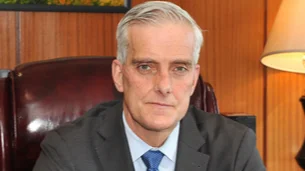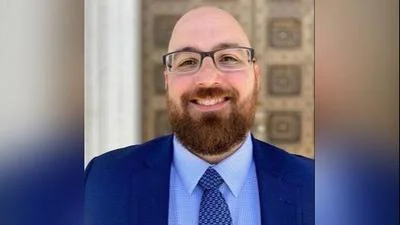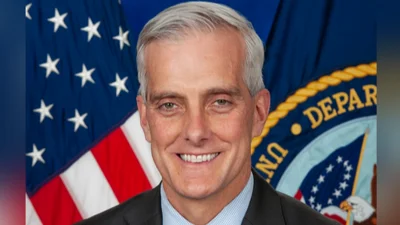The publication is reproduced in full below:
40TH ANNIVERSARY OF S. RES. 268
Mr. CARDIN. Mr. President, I rise today to take note of the enduring support by the American people and by this body for the cause of democracy and human rights in Poland.
It is difficult to acknowledge so much time has passed, but it was 40 years ago this week, on December 13, 1981, that the Soviet-backed communist government and General Wojciech Jaruzelski declared a state of war in Poland. People called it ``martial law;'' in fact, it was quite literally a war declared by a government on its own people.
The U.S. Senate, led by the late statesman and Senator from New York, Daniel Patrick Moynihan, acted quickly to adopt S. Res. 268. On December 15, on the last day of the first session of the 97th Congress, this body adopted by vote of 95 to 0, S. Res. 268, ``on the imposition of martial law in Poland.''
The resolution declared that:
``it is the clear and unassailable right of the Polish people collectively to determine their own future''
It also directed that:
``the President and his Administration should consult intensively with our allies to develop a concerted and sustained response to the threat to the democratization process in Poland.''
By 1989, thanks to continuing support for the people of Poland that this Senate expressed 40 years ago today, democracy prevailed in Poland.
Only two Members of today's Senate were present and voting on December 15, 1981, and I want to express my appreciation, these many years later, for their support for the resolution: Senator Charles Grassley of Iowa, then in his very first year in the Senate, and Senator Patrick Leahy, then already in his second term in the Senate.
The trade union Solidarity had emerged on August 31, 1980, at the Gdansk Shipyard when the communist government of Poland signed the agreement allowing for its existence. Lech Walesa and others soon formed a broad anti-Soviet social movement ranging from people associated with the Catholic Church to members of the anti-Soviet left. Polish nationalism, together with pro-American liberalism, played an important part in the development of Solidarity in the 1980s. Solidarity advocated nonviolence in its members' activities. In September 1981, Solidarity's first national congress elected Walesa as its president and adopted a republican program, the ``Self-governing Republic''.
The first resolution adopted by Solidarnosc, at its First Congress in 1981, expressed a vision for the world, one based on the principle of its name. It stated:
The ultimate goal of Solidarity is to create dignified conditions of life in an economically and politically sovereign Poland. By this, we mean a life free from poverty, exploitation, fear and lies, in a democratically and legally organized society.
By December, the government in Warsaw and its backers in Moscow decided that they had enough of an assertive civil society. And so martial law was declared and the repression commenced, 40 years ago this week.
The terrible repression next door in Belarus today compares, but even it does not match the brute force of the war against the people of Poland declared by General Jaruzelski, the simultaneous deployment of hundreds of thousands of riot police, soldiers, armed vehicles, and tanks to occupy all workplaces and cities and to crush the resistance of an entire society organized in independent, self-governing unions. Yet Solidarity lived.
A democratic movement in Belarus also lives today. It is not inevitable, however, that it will win, just as it was not inevitable that Solidarity would win. Much depended on the indomitable will of the Polish people--and also on the actions of Western democracies.
The first people in the United States to stand up on behalf of the people of Poland were writers and intellectuals who formed the Committee in Support of Solidarity, including Susan Sontag, Adam Ulam, Czeslaw Milosz, and others. An energetic young man named Eric Chenowith and wise strategist named Irena Lasoda soon became familiar faces in the Halls of Congress, circulating information about the struggle of solidarity and people in Poland to endure the repression they confronted.
The political force that kept the democratic world focused on support for the people of Poland then was the American labor movement, led by its president Lane Kirkland and his secretary-treasurer Tom Donahue. They immediately established the AFL-CIO's Polish Workers Aid Fund and put Tom Kahn, the international affairs director of the AFL-CIO, at its helm. They persisted in making the steady argument, even after December 1981, that in Solidarnosc lay the potential for a new, more democratic, more just, and more peaceful world.
It was the AFL-CIO, representing 16 million people, that gave voice and strength to the free trade union Solidarity in the United States. We forget how many were willing to forsake Solidarity in the period of martial law. Indeed, only the AFL-CIO, backed by the committee, pressured President Reagan and his administration to adopt stronger sanctions in response to the state of war. As importantly, it was the AFL-CIO that made sure Solidarity was sustained through financial and material help, some of which was supported by the National Endowment for Democracy, after its creation in 1984.
Thanks to that support and steadfastness, eventually the government relented, especially once Mikhail Gorbachev rose to power in the USSR and began to pull back the support for the repressive policies in Poland and elsewhere in the Warsaw Pact.
Roundtable Talks between the government and Solidarity-led opposition led to semi-free elections in June of 1989. In an arrangement that was similar in some ways to what transpired more recently in Burma, partially free elections were organized in which a large block of seats in the legislature were reserved--in the case of Burma for the military and in the case of Poland, in 1989, for the Communist party and its allies.
All seats in the newly recreated Senate of Poland were to be elected democratically, as were 161 seats--35 percent of the total--in Sejm. The remaining 65 percent of the seats in the Sejm were reserved for the Polish United Workers' Party--the Communist Party--and its satellite parties. These seats were still technically elected, but only government-sponsored candidates were allowed to compete for them. In addition, all 35 seats elected via the countrywide list were reserved for the Communist Party's candidates to ensure that the most notable leaders of the Polish United Workers Party were elected.
But in the June elections, the people of Poland voted so overwhelmingly for the representatives nominated by Solidarity that the Communists and the military lost all credibility. By the end of August, a Solidarity-led coalition government was formed, and in December, Tadeusz Mazowiecki was elected Prime Minister.
Poland has since then developed into such a strong democracy and economically liberal country that it has led its neighbors into joining the European Union and the North Atlantic Treaty Organization. It has become in every sense an ally of the United States. And in the past 2 years, it has again been true to the heritage of Solidarity by providing safe haven for many political refugees from Belarus and elsewhere.
While many of us continue to have concerns about some aspects of Polish Government policy, its treatment of certain media outlets, and the fate of the rule-of-law in the country, the government of Poland is a friend with whom we can have honest conversations. Indeed, I am sitting down later this afternoon with the newly arrived Polish ambassador to Washington, Marek Magierowsk, to continue these conversations. This is especially important at this time because Poland will become the chairman-in-office next month of the Organization for Security and Cooperation in Europe--the OSCE--and will play a major role in shaping the OSCE's response to efforts by Russia and others to undermine the work of the organization and stability in the region.
Mr. President, I ask unanimous consent that the full text of S. Res. 268 from the 97th Congress, as adopted on December 15, 1981, be printed in the Record at this point, along with the announcement of December 15, 1981, of the creation of the Committee in support of Solidarity.
There being no objection, the material was ordered to be printed in the Record, as follows:
S. Res. 268
Whereas the American and Polish peoples share a deep and abiding friendship;
Whereas the imposition of martial law, and the suspension of workers' rights in Poland on December 13, 1981, constitute grave abridgements of the human rights and civil liberties of the Polish people;
Whereas it is the clear and unassailable right of the Polish people collectively to determine their own future: Now, therefore, be it
Resolved, That it is the Sense of the Senate that--
(1) the American people desire an early and peaceful and popularly supported resolution of the issues which have led to the imposition of martial law in Poland;
(2) the American people deplore the imposition of martial law in Poland, the suspension of the rights of workers to organize and peaceably to defend their interests, and the arrests of leaders of Solidarity; the free trade union;
(3) recent events call into question the suitability of the further provision of assistance to the government of Poland except for humanitarian programs;
(4) it is the right of the Polish people to resolve their own problems without outside interference of any kind;
(5) the support of the American people for continued United States dealings with the present government of Poland will relate directly to the degree to which the Polish government avoids violence and bloodshed, and demonstrate by its actions its respect for a full and legitimate role for the Solidarity labor union and its commitment to the continuation of Poland's reforms;
(6) the President and the Secretary of State should continue to stress this United States position in all dealings with Polish officials;
(7) the President and his Administration should consult intensively with our allies to develop a concerted and sustained response to the threat to the democratization process in Poland.
Committee in Support of Solidarity,
New York, NY, December 15, 1981.
We, the Undersigned, Declare: At midnight on December 13, 1981, the Polish army and police raided the offices of the Independent Trade Union ``Solidarity''; thousands, perhaps tens of thousands, of people were arrested in their homes. The Prime Minister, Minister of Defense and First Secretary of the Polish Communist Party in one person, General Jaruzelski, declared martial law.
Polish society, in whose overwhelming support Solidarity has its strength, has exercised the utmost restraint in the face of countless acts of provocation on the part of the government. In the sixteen months of its existence, Solidarity has committed no illegal acts; it has rigorously respected the Polish constitution and all the forms of political life accepted in civilized societies. Each and every voice from Solidarity, even if termed ``radical'' by the Communist Party or the western media, has been no more than the exercise of that right to free and open discussion of national affairs which is guaranteed by the constitution. The party and the government, on the other hand, have violated almost every agreement they have signed; they have also violated the basic right of all citizens to freedom of expression.
The present events are not the ``internal affairs of Poland.'' The Soviet Union has been intervening in Polish internal affairs since 1944. The Junta of General Jaruzelski, by linking the arrests of Solidarity members to those of former party officials, is clearly attempting to blame Solidarity for the thirty-six years of indolent and devastating communist rule that have brought Poland to economic collapse. The strikes called by Solidarity have resulted in the loss of one day's work in sixteen months; mismanagement and lack of supplies have resulted in the loss of over twenty work days.
We appeal to every democratic government, and to all those who believe in the Polish people's right to basic freedoms, to immediately halt all economic and other transactions with Poland, until every member of Solidarity is freed.Stanislaw Baranczak.Josif Brodsky.Leszek Kolakowski.Czeslaw Milosz.Susan Sontag.Adam Ulam.Stanislaw Wellisz.Thomas Wenzlowa.
____________________
SOURCE: Congressional Record Vol. 167, No. 216
The Congressional Record is a unique source of public documentation. It started in 1873, documenting nearly all the major and minor policies being discussed and debated.
Senators' salaries are historically higher than the median US income.





 Alerts Sign-up
Alerts Sign-up